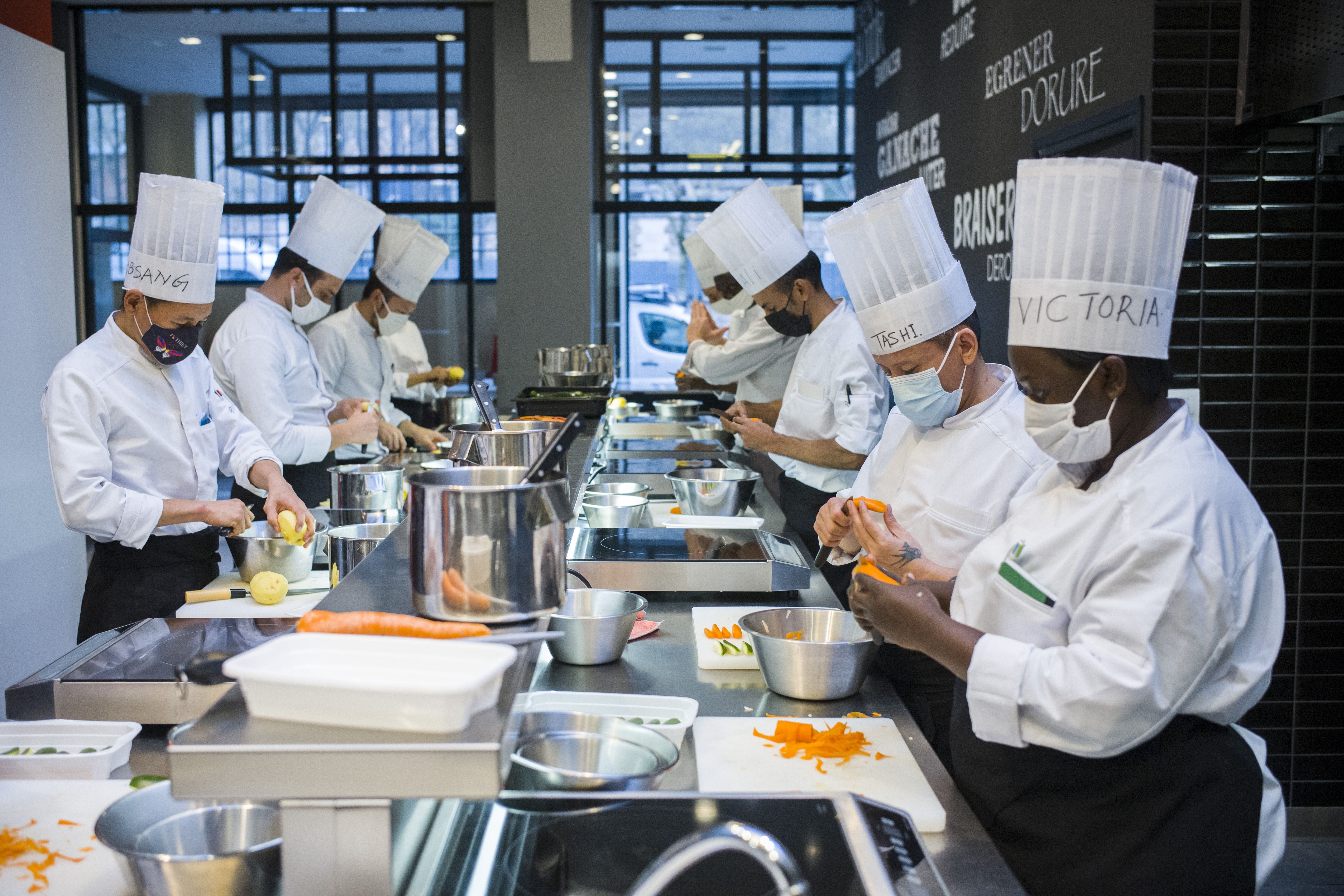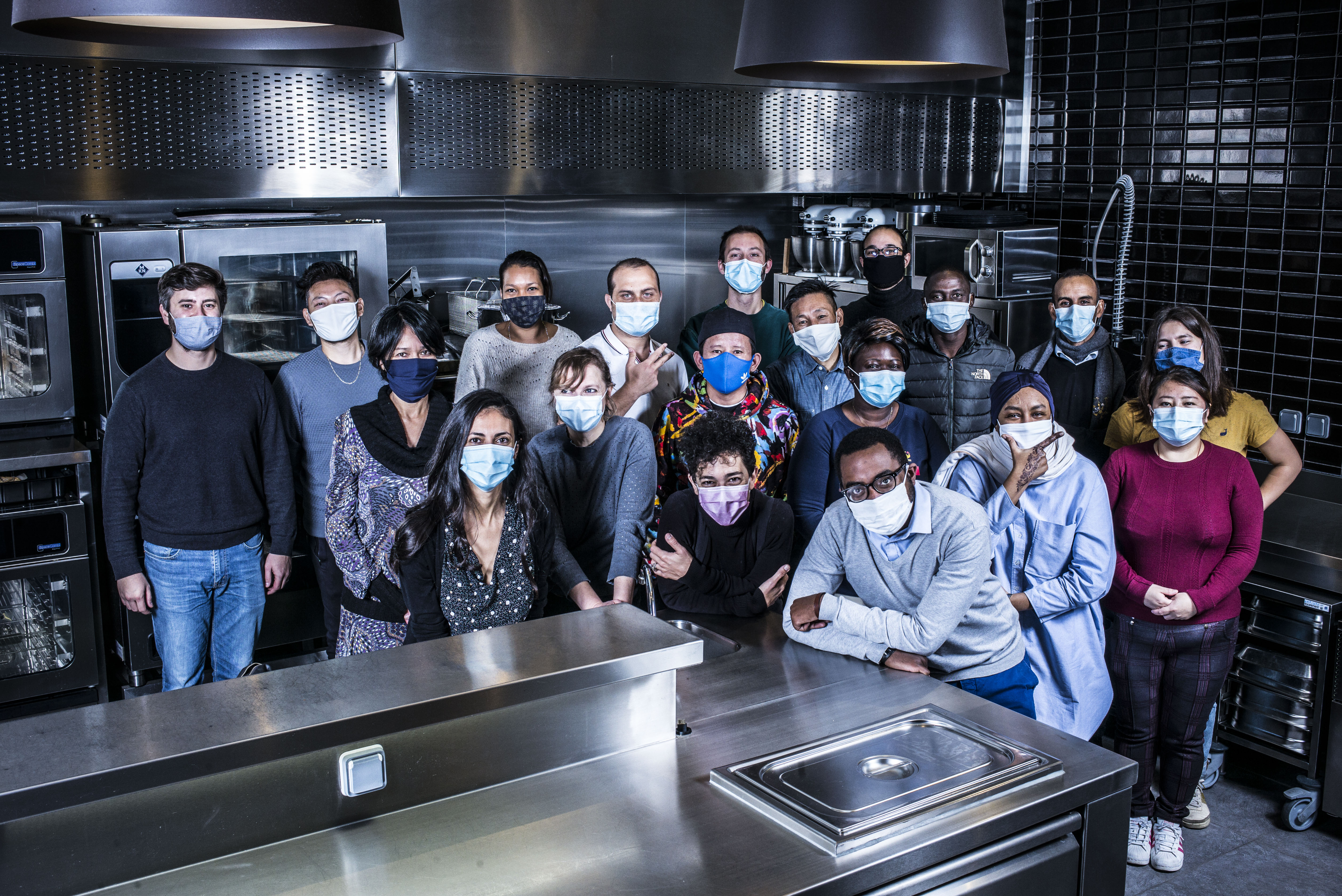The Ecole des Cuistots Migrateurs: towards a “landmark” for the integration of refugees
2015 was a year to remember, in which one million refugees crossed the Mediterranean in the hope of a better life for their families. One of them was Alan, a three-year-old boy from Syria. When his body was found on a Turkish beach, the photograph sent shockwaves through the media. While it triggered sympathy in some, it sparked fear in others. In the same year, there were several terrorist attacks in France that were linked to immigration, including the attack on the Bataclan concert hall.
It was against this backdrop that Sébastien Prunier and Louis Jacquot decided to launch the Cuistots Migrateurs.
“We wanted to help,” says Sébastien. “We almost felt it was our duty.”
They asked themselves what was the best way to help ensure the integration of refugees over the long term. Their solution was a catering service which employs refugees on permanent contracts with the aim of changing perceptions of this group. As motivated to solve this problem today as they were then, the same team is now launching an ambitious new project: the Ecole des Cuistots Migrateurs.

The future school for chefs
With the Ecole des Cuistots Migrateurs, Sébastien and Louis’ ambitions are moving to the next level. The school is a reflection of their desire to take the project much further, to help many more people, and to do even more than before.
Today, the catering service employs 11 refugees on permanent contracts. By the end of the year, the school will have supported 40 students, and the aim is to increase that number to 300 a year once the school moves to its own premises. Today, the Ecole des Cuistots Migrateurs is still a pilot project, supported by the Societe Generale Foundation.
Currently based at the Institut Culinaire de Paris next to the Père Lachaise cemetery, the school will soon be opening the doors of its own premises in Montreuil.
In the meantime, the programme is being tested out on four classes of ten students. The students take 400 hours of cookery classes, participate in 180 hours of French language classes, receive 20 hours of career support and advice and take part in three weeks of work experience. And the programme has been a great success, with each class attracting more than one hundred applicants.
In most cases, the people we are training would not receive training elsewhere. They would go straight into jobs washing dishes or at the lowest level in restaurants.
Sébastien Prunier, co-founder of the Cuistots Migrateurs
The school’s mission is to improve the employability of its students and to remove the obstacles to their integration. Sébastien describes it as a “landmark” project, with students getting comprehensive support in one place combining professional training, language lessons and welfare assistance “without having to run to the other side of Paris for their French lessons”.
The initial results of this pilot phase have been very encouraging: 70% of students from the first group to complete the programme have gone on to find a stable job, in spite of the pandemic and the fact that restaurants have only recently reopened. As the school opens, there are 100,000 vacant jobs in catering and the restaurant trade.
“The truth is that there aren’t enough places to get training,” explains Sébastien. “And we are different both due to our model and the fact that we are free, which is important for helping those who have often risked their lives to come and live in France.”
The fact that the training is free has been made possible by the opérateurs de compétences (organisations approved by the government to support the provision of professional training) system and the support of foundations.

Pour en savoir plus sur l’association et soutenir son projet, rendez-vous sur : https://www.lescuistotsmigrateurs.com/projet-ecole/
